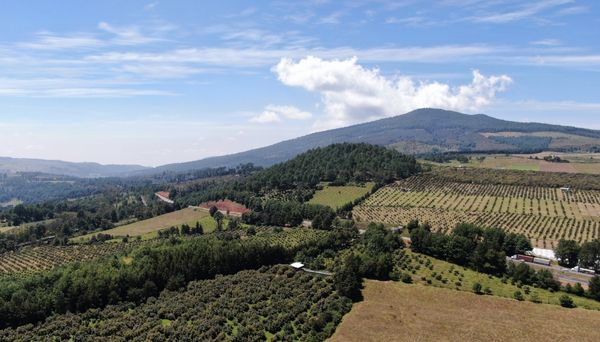CEC Receives Submission on Avocado Production in Michoacán
Montreal, 3 February 2023 — On 2 February, a Mexican citizen filed a submission under Chapter 24 of the United States-Mexico-Canada trade agreement (USMCA/CUSMA) with the Commission for Environmental Cooperation (CEC). The Submitter asserts that Mexico is failing to effectively enforce its environmental laws to protect forest ecosystems and water quality from the adverse environmental impacts of avocado production in Michoacán, Mexico.
In submission SEM-23-002 (Avocado Production in Michoacán), the Submitter asserts that Mexico is failing to protect forests and water resources in Michoacán from environmental impacts and deforestation caused by the continued expansion of avocado plantations. In particular, the Submitter claims that Mexico is failing to uphold provisions of the Mexican Constitution and various federal laws focused on environmental impact assessment, forestry conservation, sustainable development, water quality, climate change and environmental protection.
The Submitter maintains that forests play an important role in providing wildlife habitat, supporting biodiversity, mitigating climate change, conserving soil, filtering water, and recharging aquifers, among other contributions. The Submitter underscores the remarkable growth of the avocado industry in Michoacán in recent decades, positioning it as the main exporter of avocados in the world, most of which are exported to the United States. The Submitter acknowledges that not all avocado producers have the same type and degree of environmental impacts but asserts that research has shown that the majority of avocado production in Michoacán generates high levels of environmental impacts and that deforestation rates in Michoacán for avocado plantations are among the highest in Mexico and Latin America.
The Submitter cites the Mexican Constitution, the General Law of Sustainable Forestry Development (Ley General de Desarrollo Forestal Sustentable); the General Law of Ecological Balance and Environmental Protection (Ley General del Equilibrio Ecológico y la Protección al Ambiente); National Water Law (Ley de Aguas Nationales); Sustainable Rural Development Law (Ley de Desarrollo Rural Sustentable); General Law of Wildlife (Ley General de Vida Silvestre) and the General Climate Change Law (Ley General de Cambio Climático).
The Secretariat will review the submission within 30 days and determine whether it meets the requirements of USMCA/CUSMA Articles 24.27(1), (2), and (3). To learn more, please consult the registry page for the submission SEM-23-002 (Avocado Production in Michoacán).

Submission filed under USMCA/CUSMA Chapter 24 asserts failure to effectively enforce environmental law in Mexico to protect forest ecosystems and water quality in relation to avocado production in Michoacán, Mexico.
The CEC SEM Process
The CEC Submissions on Enforcement Matters process supports public participation, information-sharing between governments and the public, and transparency and openness in the effective enforcement of environmental law in North America. If you have reason to believe that an environmental law is not being effectively enforced by Canada, Mexico or the United States, the SEM process may address your concerns.
As of 1 July 2020, the CEC’s SEM process is governed by USMCA Articles 24.27 and 24.28 of the Environment Chapter of the free trade agreement between Canada, Mexico and the United States (CUSMA, T-MEC, USMCA).
Want to learn more about the SEM process? Please watch this two-minute video for an introduction: